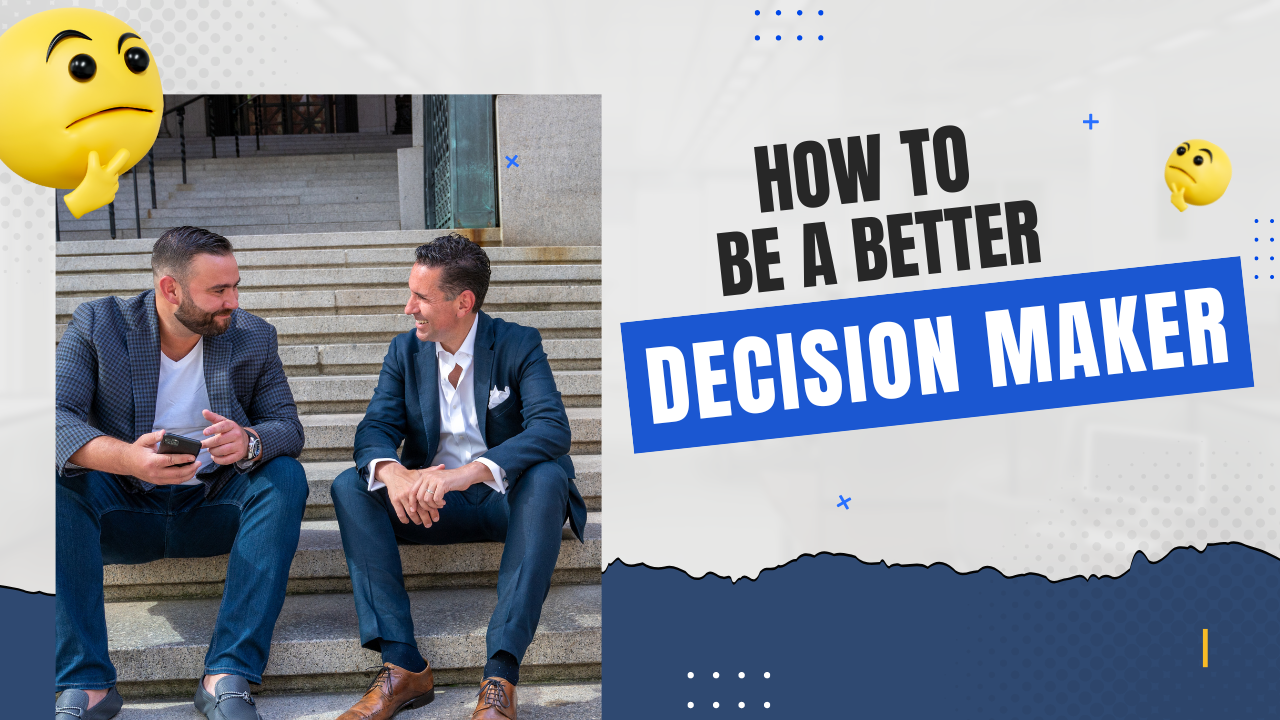How to be a Better Decision Maker

If your decision-making skills closely resemble a squirrel trying to cross the street, keep reading.
As a small business owner, you are confronted daily with (what feels like) thousand-and-one decisions -- many of which you don't even realize you're making. But even though you're getting a ton of practice, there is always room for improvement. Effective decision-making is one of the most powerful tools business owners have to drive action; cultivating this skill should not be overlooked.

The process of decision-making falls into two broad categories: Intuitive and Rational. Intuitive decisions rely on a "sixth sense" or "gut feeling." They tend to be more emotional-based and influenced by a person's mood. These types of decision-makers are looking for an outcome that feels right. Meanwhile, rational decisions are based on data and facts. It's a more black-and-white approach that has little regard for the emotional consequences and prioritizes an outcome that makes sense.
Neither of these processes is inherently better or worse than the other. Each has its place and uses. But the ability to lean into both -- depending on the decision that needs to be made -- is invaluable. Here are a few strategies you can incorporate into your decision-making process to help you become a more effective manager and leader.
Identify the issue.
If you don't know what's broken, you won't know how to fix it. The first and most important step is to clearly identify the problem.
Not all decisions are created equal.
Don't spend valuable time and energy on inconsequential decisions that don't have actual long-term effects. Ever wonder why Mr. Mark Z is always sporting the same sort of look day after day? It's not because he's really behind on laundry; instead, he has removed that decision of what to wear to help keep his mind clear for the more significant, more important decisions. (Clearly, his Metaverse avatar slipped through the cracks.) Think that sounds nuts? Researchers at Cornell University found we make 226.7 decisions each day on just food alone. Always assign a value to the decision that needs to be made; if it's pennies, flip a coin and move on.
Create a deadline
Some decisions will come with their own built-in deadline, but for those that are more open-ended, one of the worst things you can do is not give yourself a due date. By creating a sense of urgency, you'll be more likely to prioritize the issue and give it the time and attention it deserves.
Collect feedback.
While the final outcome ultimately depends on your decision, don't hesitate to reach out and lean on others for advice and feedback. These could be trusted team members, a business coach, advisors, or colleagues who have faced similar situations. Entrepreneurs and small business owners tend to work in silos out of necessity; when you're running a one-man (or one-woman) operation, you learn to depend on you and you alone. And even as you transition to leading and managing a team, it can be easy to fall back on old habits of isolated decision-making. Use whatever resources you have available to assist you with the process -- and that includes using the perspective of others.
Stay neutral -- but only when necessary.
If you're an intuitive-based decision-maker, the ability to stay neutral can be difficult, but it's sometimes necessary to make a wise and pragmatic decision. By removing your opinions and feelings from the equation, you can get a clearer look at the whole picture; you might just be surprised by what you discover. On the flip side, staying neutral could backfire in some cases. Hamilton (the musical, not the Founding Father) said it best: "If you stand for nothing, Burr, what'll you fall for?" Sometimes your opinions, feelings, and beliefs are necessary to make the best right decision. Be discerning about what the situation calls for.
Keep the end in mind.
The ultimate goal of making a decision is to improve an outcome. Dr. Stephen R. Covey's book, The 7 Habits of Highly Effective People, suggests "beginning with the end in mind." In other words, you need to have a clear understanding of your destination. Will this decision get you closer to your goal? Or is it going to leave you stranded at a roadside motel? Even if it pushes you two steps forward and one step back, at least you're still moving in the right direction.
Like so many things in life, there is no one-size-fits-all approach to the process of effective decision-making. And often, we won't know if the decision we reached was the right one until after it's been made; it's no wonder so many of us face decision paralysis (or look like squirrels trying to cross the street). But the worst decision you can make is no decision at all. By incorporating these strategies, you have a better chance of improving your outcomes and making wise, sensible decisions for yourself and your business.



